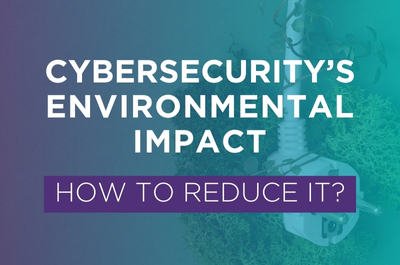Sustainable development, a vector for profound business transformation
Climate change at the forefront of the media, political and societal agenda
The news has been marked by multiple climate disasters in the last few months: heat domes in Canada, torrential rains in Germany and Belgium, megafires in Siberia, etc. Awareness of the climate emergency has become clear, reinforced by the “red alert for humanity” in the latest IPCC report. Faced with this, the States are significantly increasing the ambition of their climate policies: the “fit for 55” legislative package in Europe, and the massive infrastructure investment plan in the United States, for example. Far from being outdone, consumers are expressing increasingly strong expectations for sustainable products and services. Finally, students are now questioning their career choices in the light of corporate social responsibility.
Sustainable development at the heart of corporate strategies
Faced with regulatory constraints and the growing expectations of consumers and their employees, companies are now placing climate change and, more broadly, sustainable development at the heart of their strategy. Historically dealt with by CSR departments in an approach essentially based on risk management, sustainable development is now asserting itself as a source of opportunity and competitive advantage for success in the marketplace.

Baecher Cédric
Partner, Wavestone
We have truly entered the operational phase of the long-term, sustainable transformation. Of course, we need to continue conversing to analyze risks and opportunities, define the right levels of ambition, and inform decision-making; but we also, and above all, need to align methods and tools, make data more reliable, execute action plans and better measure their real impact.
Transformation affects all economic sectors
At the root of the climate problem, the major energy companies are reshaping their business portfolios to invest heavily in renewable energy and energy services. Car manufacturers are moving rapidly towards electric vehicles, transforming their production lines and developing shared mobility services. With crucial leverage, banks and insurance companies are assessing the sustainability of their asset portfolios, reorienting their investment policies and supporting their clients in the transition. Heavy industry is looking at process electrification and hydrogen, while retailers are mobilising their supply chains and developing the circular economy and second-hand markets.
A profound transformation at all levels
The transformation that is taking place is on an unprecedented scale and represents a colossal challenge for companies. It affects their business portfolios, business models, products & services, production units, supply chains… not to mention the indispensable cultural and managerial transformation, which is particularly complex to carry out in large companies! There is no doubt that the success, or even the survival of companies in the coming decade will depend particularly on their agility and their ability to reinvent themselves, with a raison d’être that mobilises employees and all stakeholders.
"The Business of Impact" Podcast

Cecilia Edwards
Partner
Wavestone US
I believe we all have the potential to change the world. Our mission is to inspire leaders to act, and equip them with the tactics for leading successful collaborative transformations. Together, we can create brighter, more sustainable future for all.
To get inspired...
As part of its CSR strategy, Wavestone has set itself the objective of supporting its clients in the move towards a sustainable performance.
Our responsible consulting approach responds to this commitment.



